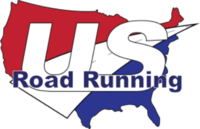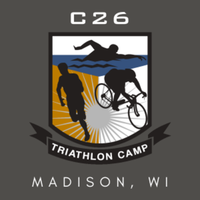Event Description
Introduction
As an academic consultant, I have spent many years guiding students who face the challenge of producing written work that is both rigorous and professionally relevant. Essays, research papers, and reflective reports are not merely requirements of coursework; they are exercises in precision, analysis, and the clear expression of knowledge. This event will explore different approaches to academic writing and their impact on student learning and professional development. Alongside independent strategies, I will also discuss how external resources, such as the KingEssays essay writing service for nursing, can function as structured learning models when integrated thoughtfully.
Independent Development of Writing Practices
Many students choose to write their assignments entirely on their own. This approach provides space to strengthen original thought, practice analytical reasoning, and develop persistence under pressure. Independent writing sharpens the ability to evaluate sources critically, build arguments, and ensure that each stage of the essay reflects the student’s own voice.
However, independent work also brings difficulties. Time management often proves a major barrier, particularly in demanding academic programs. I have observed students with strong ideas struggle to present them clearly, or to integrate research findings into a coherent essay. For these learners, the absence of feedback during the process can limit growth and lower the final quality of work. In such situations, guided academic models become valuable tools for bridging gaps without replacing independent effort. Reviewing structured examples—such as those available through https://kingessays.com/pay-for-essay/ —has helped many students I advise recognize weaknesses in structure, refine their use of evidence, and strengthen their analytical approach.
Balancing Support with Academic Integrity
Responsible use of professional resources is not a shortcut but a means of enhancing understanding. Model essays, editorial guidance, or structured writing consultations offer students a clear framework of academic expectations. When approached as references, these supports can demonstrate appropriate formatting, effective integration of research, and accurate citation practices.
The essential principle is balance. While students should maintain ownership of their arguments and evidence, they can use professional models to compare their progress with established academic standards. In my experience, this combination of self-directed writing and responsible external guidance often produces the strongest outcomes.
Lessons from Case Experiences
In consulting sessions, I frequently work with nursing students who face unique pressures. Clinical placements demand extensive time, while written assignments require precision and analytical depth. Those who attempt to complete essays alone often express frustration at the lack of time to refine drafts. Conversely, students who accessed professional models were able to see immediate examples of well-organized writing, which informed their revisions and improved final outcomes.
One postgraduate nursing student I advised struggled with synthesizing multiple sources into a literature review. After analyzing a professional sample paper, she was able to recognize how transitions and citations connected evidence to argument. This did not replace her own effort but gave her a foundation from which to revise with greater confidence. Over time, her independent work demonstrated measurable improvement.
Relevance for Different Audiences
This event is intended for multiple groups:
-
Undergraduate and postgraduate students seeking practical strategies for improving their writing.
-
Educators who wish to better understand how students use external resources to complement their work.
-
Academic advisors and consultants looking to refine their own methods of student support.
By addressing each perspective, the session will provide a comprehensive understanding of how academic writing practices evolve and how they can be strengthened.
Expected Outcomes of Participation
Participants will leave this session with:
-
A structured comparison of independent versus professionally supported writing practices.
-
Practical insights into how external models can serve as learning tools without undermining integrity.
-
Strategies for aligning writing approaches with long-term professional and academic development.
-
A deeper understanding of how to integrate reflection, evidence, and analysis into clear, persuasive writing.
Long-Term Value of Academic Writing
The ability to write well is central to both academic and professional success. In fields such as nursing, writing is not limited to essays; it extends to clinical documentation, research communication, and professional reporting. Accuracy, structure, and clarity are vital. Academic writing practices developed in university become essential skills in practice, influencing both communication with colleagues and patient care documentation.
As I will highlight during the event, students who learn to balance self-directed effort with responsible external guidance often see improvements not only in grades but in confidence and professional preparedness. Writing support, when used thoughtfully, can accelerate the acquisition of skills that would otherwise take years of trial and error to develop.
Practical Guidance for Improvement
Toward the conclusion of this event, I will present concrete strategies that participants can adopt to refine their writing. These include systematic approaches to reading and note-taking, methods of structuring arguments, and the value of seeking feedback early in the drafting process. Equally, I will stress the importance of reviewing high-quality models to understand expectations at a practical level. Students who aim to improve writing skills consistently report that their progress accelerates when they combine deliberate practice with access to structured examples.
Call to Action
I invite students, educators, and academic professionals to attend this session. The discussion will provide not only a comparison of writing approaches but also a roadmap for building stronger skills that carry into professional practice. By participating, you will gain evidence-based insights into how writing choices shape both academic outcomes and long-term career success. Please register to secure your place in this event and join a reflective, forward-looking discussion on academic growth.



